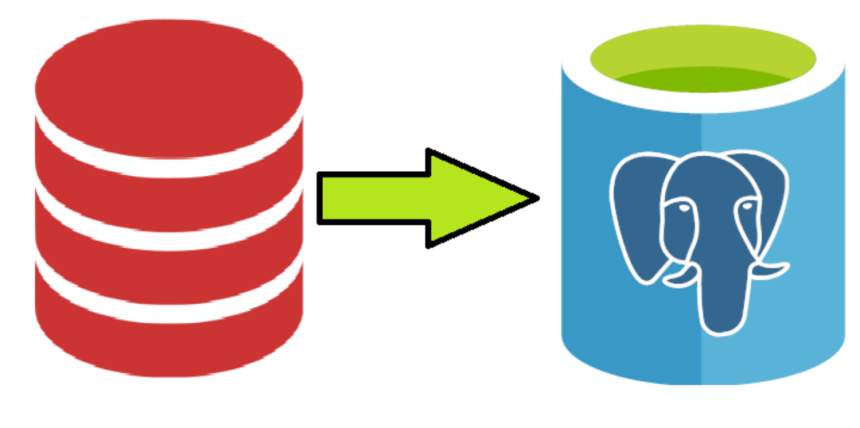As businesses continue to evolve and grow, the need for scalable and cost-effective data management solutions becomes increasingly important. One such solution that’s gaining popularity is migrating from Oracle to Postgres. This move can provide a range of benefits, including improved scalability, lower costs, and enhanced flexibility. In this article, we’ll take a closer look at the Oracle to Postgres migration process and the benefits of making the switch.
What is Oracle to Postgres Migration?
Oracle to Postgres migration is the process of moving data and applications from an Oracle database management system to a Postgres database management system. This migration is typically performed when a business is looking to reduce costs or improve scalability, as Postgres is known for being highly scalable and cost-effective.
How Does Oracle to Postgres Migration Work?
The Oracle to Postgres migration process involves several steps, including:
Planning: The first step in the migration process is to plan the migration strategy. This involves identifying the data and applications that will be migrated, as well as the timeline and any potential roadblocks that may arise.
Data extraction: Once the migration plan is in place, the next step is to extract the data from the Oracle database. This can be done using a range of tools and techniques, including export and import utilities, third-party migration tools, and custom scripts.
Data transformation: After the data is extracted from the Oracle database, it must be transformed to the appropriate format for Postgres. This may involve converting data types, rewriting queries, and making other modifications to ensure that the data is compatible with Postgres.
Data loading: Once the data has been transformed, it can be loaded into the Postgres database. This can be done using a range of tools and techniques, including the COPY command, SQL scripts, and third-party migration tools.
Application migration: Finally, the applications that rely on the Oracle database must be migrated to use the Postgres database. This may involve modifying application code, rewriting queries, and making other changes to ensure that the applications are compatible with Postgres.
Benefits of Oracle to Postgres Migration
There are several benefits to migrating from Oracle to Postgres, including:
Improved scalability: Postgres is known for being highly scalable, which means that businesses can easily scale up or down as their data management needs change.
Lower costs: Postgres is an open-source database management system, which means that businesses can save money on licensing fees and other costs associated with using proprietary systems like Oracle.
Enhanced flexibility: Postgres is highly flexible and can be customized to meet the unique needs of businesses of all sizes.
Choosing a Migration Partner
When considering an Oracle to Postgres migration, it’s important to choose a migration partner that has experience with both Oracle and Postgres. This can help ensure that the migration is completed smoothly and efficiently, with minimal downtime or disruption to business operations.
In addition to experience with both Oracle and Postgres, it’s important to choose a migration partner that offers comprehensive migration services, including planning, data extraction, data transformation, data loading, and application migration. The partner should also offer ongoing support and maintenance to ensure that the migration is successful in the long term.
Conclusion
Migrating from Oracle to Postgres can provide a range of benefits for businesses of all sizes. From improved scalability and lower costs to enhanced flexibility and customization, Postgres is a powerful database management system that can help businesses better manage their data and applications.
When considering an Oracle to Postgres migration, it’s important to choose a migration partner that has experience with both systems and offers comprehensive migration services. With the right partner and a well-executed migration plan, businesses can make the switch to Postgres with confidence, knowing that their
There are many factors to consider when migrating from Oracle to Postgres, but one of the most important is ensuring the security of your data. Postgres offers a range of security features that can help you protect your data, including encryption, access controls, and auditing. It’s important to work with a migration partner who can help you implement these features and ensure that your data is secure throughout the migration process.
Another important consideration when migrating from Oracle to Postgres is performance. Postgres is known for its speed and efficiency, but it’s important to ensure that your data is optimized for the new environment. This can involve tuning your database schema, optimizing your queries, and making other changes to ensure that your data is as efficient and effective as possible.
Finally, it’s important to consider the long-term impact of your migration. Postgres is a highly flexible and scalable database platform, and it’s important to ensure that your migration plan takes into account the potential growth and evolution of your business in the years ahead. This may involve implementing new features or technologies, working with partners to build new applications, or taking other steps to ensure that your data is always working for you.
In conclusion, migrating from Oracle to Postgres can be a complex process, but it’s also an opportunity to improve the performance, security, and scalability of your data. By working with a trusted migration partner, taking a strategic approach to your migration, and staying focused on your long-term goals, you can ensure that your data is always working for you and helping you achieve your business objectives.















